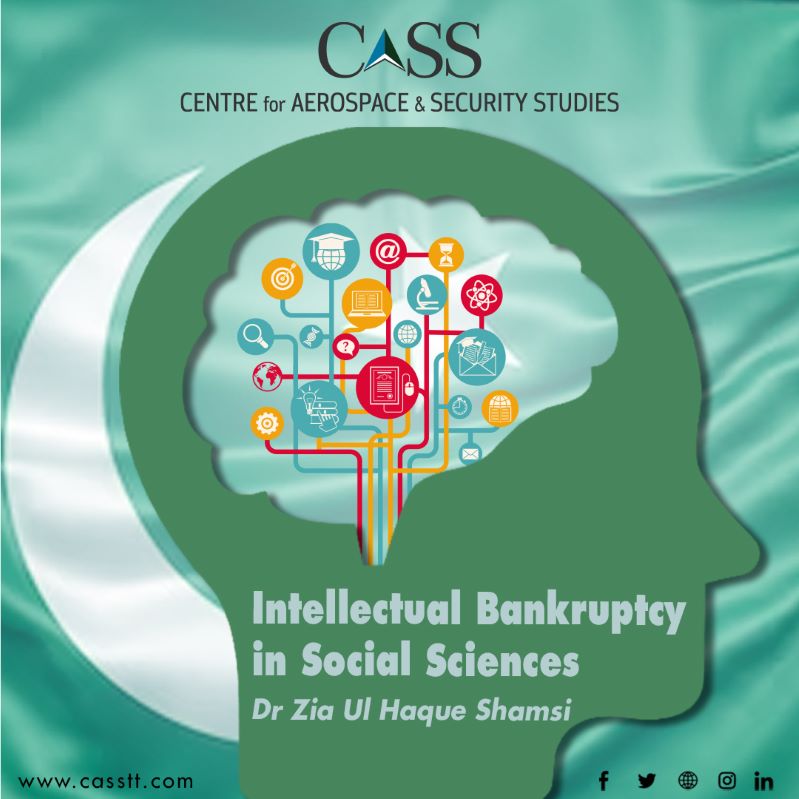Let’s admit that social scientists are stuck with traditional theories of realism, liberalism, constructivism, deterrence, compellence, etc., and have miserably failed to bring out any notable theory that could have prevented conflicts and wars across the globe. On the other hand, natural scientists and technologists continue to surprise mankind and have done more for the socio-economic and socio-cultural development of human security. Contemporary social scientists are plagued with the disease of Google Search, Wikipedia and other easy way-outs (including myself), not to mention the cut-and-paste facility that has put the real work of research to rest.
There is a dire need to inject a fresh air of Originality & Objectivity (O2) into Social Sciences if the social scientist is sincere in contributing towards academic literature and the betterment of humanity. This proposal is not meant, by any means, to show disrespect for teachers, scholars, and researchers, but only to remind them of their core responsibility. In my opinion, the primary objective of a social scientist’s research should be to explore ways and means for the benefit of society.
Unfortunately, scholarly contributions by social scientists have been stagnant and mostly unproductive. Their contributions towards humanity in general and global peace, in particular, are far below the expectations of mankind. Whereas, researchers in the domain of natural sciences have done wonders during the past 50 years. Be it for the development of information technology or the move towards space, a lot of ground has been covered, and civilisation has benefitted immensely from these developments. While natural scientists and technologists were exploring space and developing communication tools, what the social scientists should have done was to create awareness about the ill effects of certain innovations on the social life of the people. For instance, the fallout of smartphones being used for entertainment, however, not much effort was put in by social scientists to make people aware of the possibilities of losing family time. We have failed to convince our younger generation about the importance of physical outings versus screen time. Moreover, the value system that prevailed for centuries over other societies is also diminishing due to a lack of research in the domain of anthropology, psychology or sociology.
Perhaps, beauty lies in the originality of an idea and the presentation of the argument duly supported by relevant references. Objectivity remains a pillar of good research, and therefore, O2 needs to be injected sooner than later. Take the situation during the Pandemic – medicinal research was quickly done and mankind was saved from a total disaster in months and not years. However, social scientists could not come up with socio-psychological solutions, and could not even convince people to wear masks, maintain social distance, and quarantine peacefully, without large-scale demonstrations against these limitations, even in developed societies which were affected the most.
Likewise, there is no reluctance or realization on part of stronger nations to wage wars against an Unequal Military Power (UMP), merely because Clausewitz declared that war was an instrument of policy. The so-called superpowers will first destroy a much smaller country, killing hundreds of thousands of people and then give aid to rebuild the same destroyed state, if it succumbs to their will. Perhaps, only to keep their Military Industrial Complex (MIC) growing.
In my capacity, as a student of Social Science, I proposed revising the theory of ‘Realism’ with ‘Realizm’. The very purpose of introducing this new political theory of realizm is to minimise the probabilities of wars and conflicts between UMPs so that the people in the weaker states, do not suffer the way we have seen in the recent past. I was of the view that a handful of realizers can prove to be game-changers, and alter the course of history for the betterment of humanity. The idea was “to impress upon the argument that global peace and stability is possible through regional cooperation, compassion, and prudence…. for discussion by academia and experts on the subject.”
In my opinion, it is the responsibility of social scientists to constantly give ideas to resolve conflicts instead of only managing them. We must not assume that nothing will change because game-changers do emerge out of such writings and ideas.
Dr Zia Ul Haque Shamsi is the author of ‘Nuclear Deterrence and Conflict Management Between India and Pakistan’ and ‘South Asia Needs Hybrid Peace.’ He is presently working as Director (Peace and Conflict Studies) at the Centre for Aerospace & Security Studies (CASS), Islamabad, Pakistan. The article was first published in Daily Times. He can be contacted at: [email protected]





